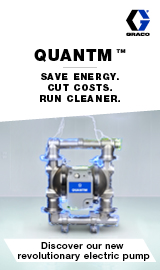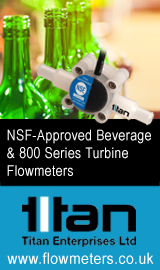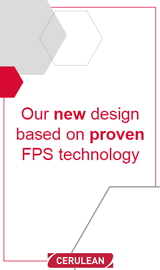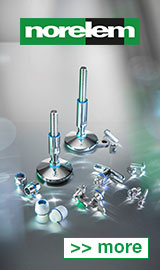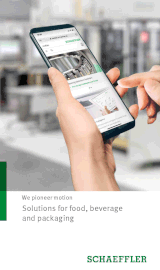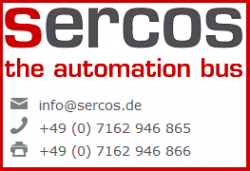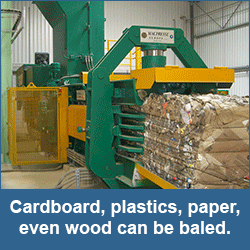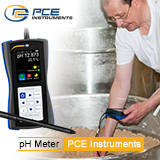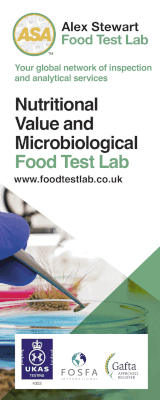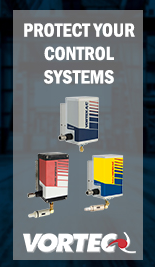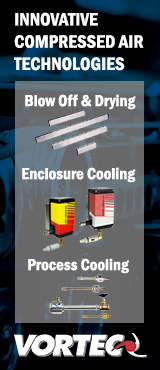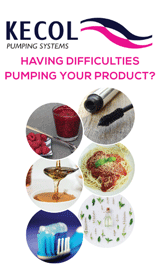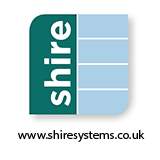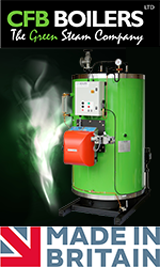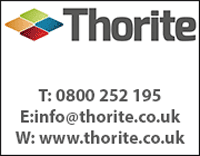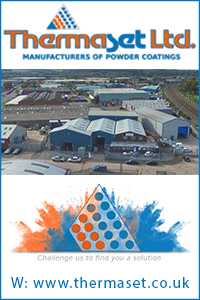CHECKING IN” WITH FORTRESS
Marking another checkweighing milestone, Fortress Technology Europe launched its new inline portion-control Raptor checkweigher at PPMA 2023. A slim-line ergonomic checkweighing machine is now also available.
Sharing the company’s extensive knowledge on international net weight verification rules that govern food checkweighing, Fortress explores the ‘compliance essentials’ that can protect brand integrity while simultaneously lowering operational costs.
Efficient weight control and checkweighing systems are integral to meeting consumer expectations.
In addition to inspecting under and overweight packages and ensuring compliance with net content regulations, deploying smart checkweighers inline and at the end of food processing lines can provide a source of untapped Quality Assurance, waste reduction and brand protection.
Product giveaway is the long-accepted outcome of observing weight legislation rules. However, when food manufacturers overfill packaging to avoid falling foul of international and domestic weight legislations, it can lead to a considerable profit losses. Even nominal overfilling can add up. In a new Whitepaper published by Fortress Technology, European Applications Engineer Daniel Shail examines the risks versus regulations and delves into the pitfalls of non-conformance.
COST OF CUTTING CHECKWEIGHING CORNERS
Global weight regulations are in place to protect consumers against short measures. The cost if caught selling underweight packaged food products can lead to penalty fines ranging from several hundred, to thousands of pounds. In regions where the rules are even stricter, knowingly distributing underweight products could be deemed fraud.
The picture could be even worse for a multi-national food company with global reach. A widespread recall could rise to several million pounds if withdrawing an entire batch of underweight processed and packaged products.
Longer term brand image also needs to be considered. A social media report can rapidly spiral, leading to potentially serious consequences if a recall is not acted upon swiftly. The resulting impact can be highly detrimental. Consumer research by Harris Interactive[i] reports that 55 percent of people would switch brands temporarily following a product recall, while 15 percent said they would not purchase that brand from the manufacturer again. A recall of this scale is often avoidable if food defences are robust and risks are regularly reviewed.
AVERAGE WEIGHT RULES
To avoid issues with weight legislation it is common practice for food plants to overfill. Yet, given the cost of ingredients, food commodities, and packaging, combined with the current cost of living crisis, overfilling is no longer considered a good or sustainable business practice.
In order to cut down on product waste and lost profits, it is advisable for food processors to familiarise themselves with the weight legislation requirements for any region where their products are sold or exported to. The rules in Europe, Canada, and the U.S. are quite aligned, although subtle differences do exist.
Typically, global weight regulations follow three general rules:
- The average weight of a product batch must not be below the nominal label weight on the package.
- The percentage of packages that fall below the nominal weight should typically not exceed 2.5%. These are called tolerable negative error (TNE) in Europe, the limits of error (LOE) in Canada, and maximum allowable variation (MAV) in the US.
- No individual package can have a weight that falls outside the nominal quantity by more than twice the domestic defined tolerance table.
Tolerance tables can be difficult to navigate. Manually determining and programming the correct checkweighing tolerance for specific product applications and pack sizes can be a tedious and confusing process. It can also be prone to human error.
To help processors accommodate numerous weight check product variations, Fortress integrates these defined tolerance tables into its Raptor Checkweigher software. This provides instant adherence to the local legislative weight regulations.
OPTIMISING CHECKWEIGHING EFFICIENCY
It is widely regarded that weight checking every product on processing lines is good manufacturing practice. Fortress engineered digital signal processing into the Raptor Checkweighing series to enable the weight sensors to reset rapidly, allowing for instant and precise weight checks of individual packs in real-time. Trend feedback signals can then be instantly fed upstream to filling, portioning and packing automation equipment, signalling when to increase or decrease fill quantity.
Another benefit of automated checkweighing is the utilisation of automated reporting and data tools. Besides reducing false rejects and product waste, the use of modern network technologies allows for automatic data transmission. With integrated data collection software, everything from trends, pack rates and live OEE data is instantly reported. Production and QA personnel can then utilise this trend feedback to monitor and fine-tune production line performance, even prior to the weight check process.
For example, if a meat manufacturer finds inconsistencies in the size of meatballs, this indicates that the processing machinery is not running accurately. Beyond highlighting this fault, precision checkweighing systems can provide a controlled feedback signal to upstream automation equipment used to portion food products. This signal specifies when to increase or decrease the fill quantity accordingly, eliminating the need for human intervention.
STAYING ON TREND
Linking consumer lifestyle trends back to checkweighing tolerances is equally important. In wellbeing and weight control products, for example, absolute weight conformity is non-negotiable. If a snack pack states 100 grams, the tolerance cannot deviate by more than 0.5 grams.
Leaving the weight check until the end of the process is another highly wasteful activity, as it could result in an entire consignment of baked or packaged products being recalled. Additionally, it wastes many hours wasted in production and workforce salaries.
Inline checkweighers can be used to maintain batch-to-batch consistency. Widely used on commercial bakery, meat and prepared food production lines, automated inline checkweighing allows for individual pieces that are off target weight to be removed and reworked, Connecting to upstream portioning equipment, the new Raptor Inline Checkweigher also provides corrective feedback to upstream portioning equipment.
With the UK market value of “free-from” products now worth a substantial £3.17bn[ii] Fortress anticipates that inline weighing will inevitably become more commonplace.
Free-from products typically use expensive ingredients in the manufacturing process; some costing two to three times more than conventional flour products. Additionally, for people with coeliac disease, the internationally-agreed (FDA) maximum level of gluten considered safe is legally 20 parts per million (ppm) or less of gluten. Only foods that meet this level can be labelled ‘gluten free’.[iii] Placing even greater regulatory pressure on producers to adhere to weight specifications.
PRIORITISING FOOD SAFETY
Although automated checkweighing is not as tightly regulated currently as HACCP inspection equipment, many processors now recognise the essential role these systems play in the wider quality control program. Particularly in the sectors where food ingredient costs increased by as much as 40 percent in 2022.
Daniel Shail concludes: “A checkweigher should not just be regarded as a regulatory necessity. Although these machines are integral to meeting consumer expectations, checkweighers play an equally critical role in prioritising food safety and reducing giveaway. It is always good practice to regularly revisit operational processes and practices and examine all food waste risks.”
The standard end-of-line Raptor checkweigher is available in four belt widths – 100mm, 200mm, 300mm and 400mm – and can verify the weight of products up to 8kg. For bulk applications, e.g. pet food, ingredients, grains and other large items, the Raptor Caseweigher can weigh up to 25kg, with a heavy duty version available up to 50kg. Fortress can also integrate its new Raptor Checkweigher with a metal detector or x-ray machine, and has even created numerous small-footprint multi-aperture, multi-lane combination systems.
To download a free copy of the new Checkweighing Compliance Essentials whitepaper, visit https://fortresstechnology.com/white-papers/
[i] https://theharrispoll.com/wp-content/uploads/2017/12/Harris-Interactive-Poll-Research-Crisis-Food-Recalls-2007-06.pdf
[ii] Kantar World Panel research 2022
[iii] https://www.coeliac.org.uk/information-and-support/living-gluten-free/the-gluten-free-diet/food-shopping/food-labels/?&&type=rfst&set=true#cookie-widget









